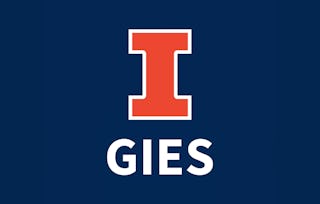Starting in the late 1990s, “globalization” became a buzzword to describe the apparent integration of markets in the world economy. Many authors and pundits claimed that the world was converging towards a market-friendly democratic place, while gurus and consulting firms were rapidly producing formulae and advice on how to make profits out of the global economy. Decades later, new realities show that globalization does not necessarily mean political, cultural, and economic convergence and that, in fact, forces against it are strong.

Global Strategy I: How The Global Economy Works
Seize the savings! Get 40% off 3 months of Coursera Plus and full access to thousands of courses.

Global Strategy I: How The Global Economy Works
This course is part of Global Challenges in Business Specialization

Instructor: Marcelo Bucheli
20,798 already enrolled
Included with
300 reviews
What you'll learn
Understand how we got to this point in the global economy and why it matters.
Understand the complexities of the current globalization and how not all countries are the same.
Evaluate the effects of international trade regulations on international business.
Evaluate when and why we should operate as multinationals.
Details to know

Add to your LinkedIn profile
5 assignments
See how employees at top companies are mastering in-demand skills

Build your subject-matter expertise
- Learn new concepts from industry experts
- Gain a foundational understanding of a subject or tool
- Develop job-relevant skills with hands-on projects
- Earn a shareable career certificate

There are 4 modules in this course
Earn a career certificate
Add this credential to your LinkedIn profile, resume, or CV. Share it on social media and in your performance review.
Build toward a degree
This course is part of the following degree program(s) offered by University of Illinois Urbana-Champaign. If you are admitted and enroll, your completed coursework may count toward your degree learning and your progress can transfer with you.¹
Instructor

Offered by
Explore more from Business Strategy
 Status: Free Trial
Status: Free TrialUniversity of Illinois Urbana-Champaign
 Status: Preview
Status: PreviewUniversity of New Mexico

University of Illinois Urbana-Champaign
 Status: Preview
Status: PreviewUniversity of New Mexico
Why people choose Coursera for their career

Felipe M.

Jennifer J.

Larry W.

Chaitanya A.
Learner reviews
- 5 stars
86.66%
- 4 stars
9.66%
- 3 stars
1.66%
- 2 stars
0.66%
- 1 star
1.33%
Showing 3 of 300
Reviewed on Apr 20, 2020
Very informative and wonderfully explained ! A very good learn with professor
Reviewed on Jun 8, 2020
The course can be more detailed and more around recent events.
Reviewed on Apr 21, 2020
Very excellent course about Global strategy and Global Economy. I advice this course to everyone!!!You will learn everything about Global Economy!!!

Open new doors with Coursera Plus
Unlimited access to 10,000+ world-class courses, hands-on projects, and job-ready certificate programs - all included in your subscription
Advance your career with an online degree
Earn a degree from world-class universities - 100% online
Join over 3,400 global companies that choose Coursera for Business
Upskill your employees to excel in the digital economy

